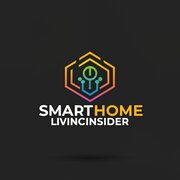Accessories
Can You Use Smart Light Bulbs Outside?

Smart bulbs, which are getting more popular, provide you with the ability to remotely manage the lights in your house. You’ll probably use a smartphone or tablet to determine when the lights in your home turn on and off.
You have the option of manually controlling your smart light bulbs or developing automatic processes to regulate them.
Many provide you with the ability to adjust the brightness of the lights, alter their colour, or have them react to other inputs. If you have smart bulbs in your house, you may programme the lights to become progressively brighter as the sun goes down.
After that, you may turn yourself off at the time that you normally go to bed. Your lights can transition from a stimulating blue light that will keep you awake while you are working to a calming orange or yellow light that will assist you in unwinding before you go to sleep.
You have the option of programming your lights to turn on automatically when someone comes by your front door or to turn on a few minutes before you arrive home after a hard day’s work after you’ve been gone all day. Several aspects of smart bulbs are ideal for use as outdoor illumination.
The usage of smart lights in the great outdoors is possible, but these bulbs are often not made to withstand inclement weather and do not function well in moist conditions.
You will need to take the necessary precautions to ensure that outside smart lights are shielded adequately from the weather. You will also need to ensure that there is a WIFI connection that is robust enough to link the devices to the hub that they use.
As you get more knowledge about installing smart lights in outdoor spaces, we will discuss the following:
- The question of whether or not smart bulbs may be used outdoors
- What it means to get an intellectual property certification and whether or not smart bulbs have an IP certification
- Concerns that may arise while using smart lights in outdoor spaces

Will Smart Bulbs Work Outside?
The Philips Hue connected light bulb. As long as the weather and other factors are adequate, there is no reason why a smart light will not function when used outdoors.
There is an increasing selection of smart lights that are developed for use primarily in outdoor settings. Still, any smart lights may be used outdoors as long as they’re correctly fitted.
Because it is not typical for these bulbs to be built to get wet, you will need to take precautions to ensure that they are covered from the rain to prevent any damage or risk.
Because exposure to direct sunlight is another potential issue, it is essential to ensure that your bulbs are set up appropriately if you want them to thrive throughout the year.
This indicates that you must either install protective casing for your fittings to prevent water from entering them, or you must angle the fitting so that it is not exposed to direct sunlight.
For instance, recessed fittings aimed downwards, like spotlights on a porch, are some of the safest solutions. Other examples include other similar configurations. Even yet, there is no guarantee that they will be safe from water splashes at all times.
If you are concerned about the environment, you will need a smart bulb that is resistant to the elements. Even while the vast majority of outdoor light fittings will protect against elements such as wind, rain, and direct sunshine, not all of them are appropriate or well-sealed.
LEDs are used in smart lamps. LEDs are often quite resilient when it comes to enduring variations in temperature.
LEDs, on the other hand, perform well even when exposed to subzero temperatures, so this bodes well for keeping everything running smoothly despite the onset of winter.
Just watch so that they don’t become too hot by being in the sun too much. Any smart bulb’s operating temperature may be found on its package if you take the time to look for it.
Do Smart Bulbs Have an IP Certification?
raining IP is an abbreviation that may stand for either “International Protection” or “Ingress Protection.” The initials “IP” are often followed by a pair of digits if anything has been granted an IP certification.
All of these factors show that the object’s casing has been examined to determine the stresses that it is capable of withstanding. The first number refers to the number of solids, such as dirt, while the second number refers to the amount of moisture, such as water.
A device that has received the IP67 certification is dustproof, splashproof, and can even withstand brief, shallow submersions in water. If something has the IP68 certification, it may be immersed in water and is protected against dust at the same time.
Either solids or liquids can pass through the casing. They may prevent the device from functioning properly or provide a risk to one’s safety.
Your bad luck is combined with the fact that the vast majority of smart lights do not have IP certification.
This indicates that it is up to you to ensure that there is an alternate kind of protection in place while you are installing the bulb. Because the light bulb has not been tested or approved to resist becoming wet, you need to make sure there is a cover over it so that it is protected from the rain.
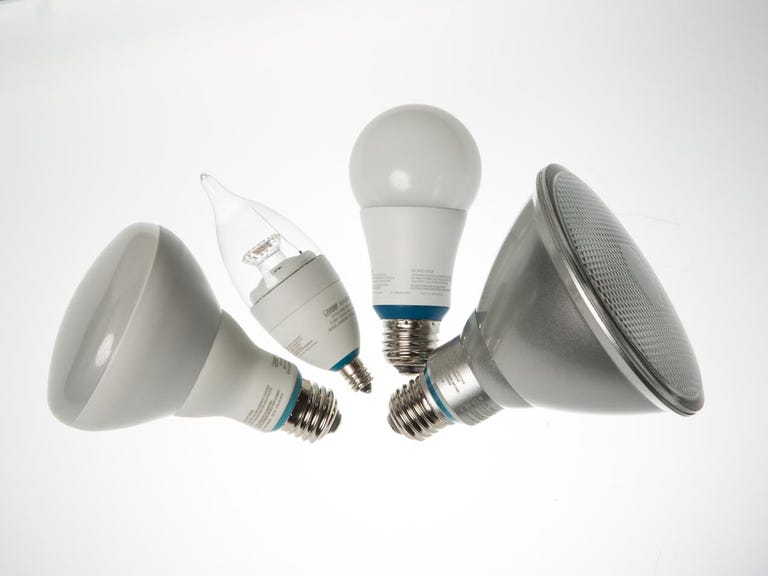
Is It Possible to Control Smart Light Bulbs Outside?
There are Apps for controlling smart lights. If you can’t operate a smart bulb from a distant location, you can’t call it smart. In every other case, it is just a light bulb that has a switch that you may use to turn it on and off.
Your smart bulb has to be wirelessly linked to the hub or device that controls it for you to exercise remote control over it. Connecting to a hub or bridge is necessary for the operation of most smart lights.
Every smart bulb in your home will link to the same hub, and it is this hub that will route and deliver the orders that you send from your phone to the individual smart bulbs.
Your orders are sent to the bulb that you are attempting to alter via the hub when you move a slider to increase or decrease the brightness, or as you touch the screen of your phone to change the colour.
The smart bulb will not react to the orders that are delivered if it is unable to establish a connection to the hub. Some smart bulbs may function independently of a hub but must still be connected to your home’s WIFI network.
An outside smart light may have a weak connection. The WIFI connection may be spotty, particularly if there are obstructions like walls or other things in the way. Your WIFI connection will be less reliable and have a shorter range if there are obstructions in the way.
It’s possible that even while you can put a smart bulb outdoors without endangering anyone’s safety, you won’t be able to use your phone to manage it. The ‘smart’ capability of your lamp will be rendered inoperable if the connection is not strong enough.
There is a possibility that you might lengthen the range of your WIFI connection by using devices known as WIFI extenders. This opens up the possibility for you to relax in the sunshine while also watching some of your favourite channels on YouTube on your mobile device.
If you are unable to expand the range of your WIFI network, you will require lightbulbs that link by Bluetooth; however, you will only be able to manage them while you are physically present in the vicinity of your house. In case you were unaware, the range of a Bluetooth device is around 30 feet.
https://www.youtube.com/watch?v=2jKaFISkl5s
FAQS
Are LED Lights Suitable for Use in Outdoor Settings?
It is risk-free to use LED lights in an outdoor setting so long as the housing they are contained in is watertight and they have the appropriate sealing.
How exactly does weather sealing function, and why is it so crucial for outdoor smart technology?
What’s on the inside, as is the case with so much else, is what really matters. The majority of waterproof and outdoor smart technologies will appear the same as their indoor counterparts.
A stronger casing may enclose a gadget sometimes, but otherwise, all of them appear quite similar. This is because the equipment is protected from the elements from inside.
The use of waterproof gaskets inside the gadget is a popular method of weatherproofing it. These safeguard the electrical components within the device against the infiltration of water.
Smart technology on the exterior is impervious to water. When water penetrates to the inside, damage quickly ensues.
The Ring Floodlight Cam isn’t designed to be used indoors, but like any outside equipment, it should be protected from the elements. Take the two LED arms down below as an example; they are well-protected thanks to their waterproof black housing and sealed front glass.
Mounted on the wall, the Ring Floodlight Cam
Rubber grommets seal off the entrance points (for the wire and the screws) on the rear bracket as well.
You may discover accounts of individuals who attempted to use their indoor smart lights outdoors on internet forums and message boards.
Simply screwing in a standard indoor light bulb to an outdoor fixture has worked well for some individuals, while doing so has soon destroyed the bulbs for others.
You’re taking a gamble if you use a smart bulb designed for indoor usage in an outdoor situation. The indoor smart devices are not water resistant. Your inside light bulb may or may not survive its first night outside in the rain.
Conclusion
Installing smart lights outdoors may provide many advantages, including increased home security and a calming ambience, which is perfect for enjoying an evening drink on the porch.
The typical smart bulb may be used outdoors provided that it is installed securely and that enough protection is provided against adverse weather conditions.
Your home’s WIFI connection has to be able to reach the light bulb for you to take full use of its smart capabilities.
In any other situation, the smart bulb may be used just like a regular light bulb and easily controlled by the light switch. If the Internet connection in your home isn’t powerful enough, you may need to invest in a WIFI extender.
You are responsible for ensuring that the light bulb does not get ruined by moisture, dust, or any other kind of fine particulate matter. What kind of uses might you find for smart lamps outside?
Have you found that it is difficult to operate your smart lights if they have located a significant distance from the hub? Share your thoughts and experiences with utilizing a smart light outdoors in the comments section below.
-
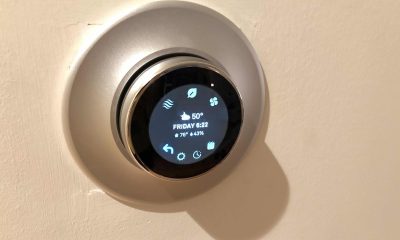
 Gadgets1 year ago
Gadgets1 year agoDoes Nest Thermostats Contain Cameras Or Microphones? Is It Safe For you?
-
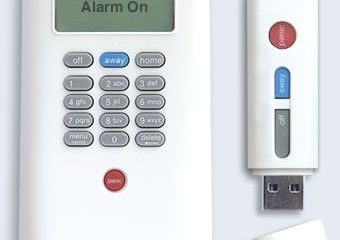
 Gadgets1 year ago
Gadgets1 year agoWhat Is The Purpose Of Red Button On The SimpliSafe Keypad?
-
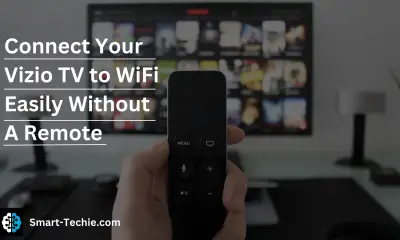
 Solutions2 years ago
Solutions2 years agoHow to Connect Your Vizio TV to WiFi Easily Without a Remote?
-
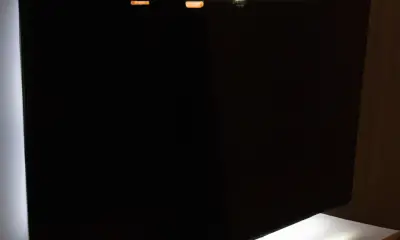
 Solutions2 years ago
Solutions2 years agoWhy is My Samsung TV Picture So Dark? Exploring the Possible Causes
-

 Accessories2 years ago
Accessories2 years agoCan A Hdmi Splitter Extend The Display To 2 Monitors?
-
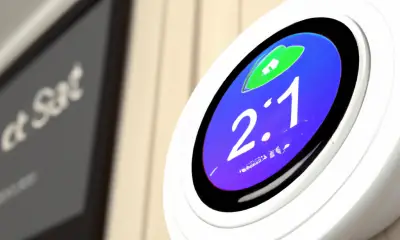
 Accessories2 years ago
Accessories2 years agoDo Smart Thermostats Run On Batteries? Let’s Find Out
-

 Gadgets2 years ago
Gadgets2 years agoFitbit Symbols Meaning: What Do The Fitbit Icons Mean?
-

 Solutions2 years ago
Solutions2 years agoWhy Can’t I Stream Netflix From My Phone? | Solution

